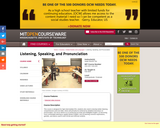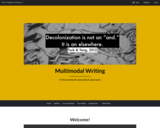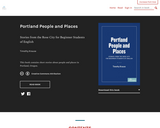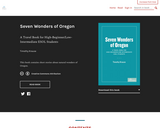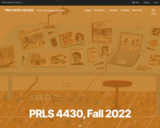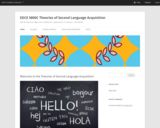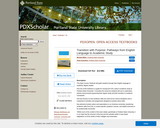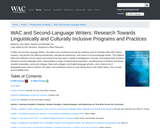Descripción del curso
SPA203 - (For native or near-native speakers.) The grammatical structure of today's standard Spanish. Intensive practice in reading, speaking, and elementary composition.
En SPA203 vamos a explorar la relación entre el lenguaje y la diversidad en el marco de los derechos humanos fundamentales. El título del curso, “¿qué hacemos con la lengua?”, nos pregunta dos cosas: qué tipo de prejuicios perpetuamos por medio del lenguaje y cómo hacer para que la lengua albergue de manera efectiva la diversidad de nuestra sociedad. En un contexto actual, sorprendente estancado en la indiferencia, la ignorancia, el prejuicio y estigmatización de quienes son diferentes bajo excusas de todo signo, urge más que nunca tomar conciencia del mundo diverso en el que vivimos, desarrollar nuestra empatía (tanto en el lenguaje, como en los actos), fomentar la equidad como horizonte deseable para nuestra sociedad y considerar un lenguaje que funcione como herramienta de concientización y de cambio.
Con este impulso como hilo de discusión, en el curso trabajaremos la competencia lingüística y la mejora en la fluidez de español tanto a nivel oral como escrito, con privilegio del registro formal o culto. Pese a esta prioridad, el curso se enmarca en un reconocimiento de nuestra capacidad translingüe (somos poseedores de un continuo lingüístico que abraza lenguas sin separación natural) y ofrecerá una posición autocrítica frente a consideraciones prescriptivas y sesgos elitistas aun prevalentes en la enseñanza de la lengua. Los aspectos gramaticales estudiados estarán basados en las necesidades del grupo y tendrán un carácter eminentemente práctico.
Dedicaremos la primera parte del curso a entender aspectos esenciales de nuestra lengua: la importancia de nuestros nombres, qué características tiene el habla de herencia y qué es translenguar, cuál es el origen del español, qué son los niveles lingüísticos y qué trabajan estos niveles, de qué hablamos cuando hablamos de las variaciones de una lengua (dialectos, registros), y de qué hablamos cuando trabajamos la norma lingüística y el llamado español “neutro”. A continuación, nos plantearemos cómo hacer para que el lenguaje responda a la realidad social. A través de lecturas de textos, visionados de vídeos y debates, revisaremos conceptos fundamentales en nuestra sociedad como son los derechos humanos, la noción de privilegio, la discriminación lingüística (glotofobia y hablismo), cómo se manifiesta el racismo y el sentimiento anti-inmigrante en el lenguaje, que diferencia hay entre lo políticamente correcto y el lenguaje no discriminatorio, qué es el feminismo y que sentido tiene la interseccionalidad, que categorías definen nuestras identidad de género y orientación afectivo-sexual, qué términos deberíamos en casos de discapacidad y neurodiversidad, respectivamente, y por último hasta qué punto nuestra identidad procede de una raíz múltiple. A través de presentaciones, el grupo de clase compartirá su conocimiento o descubrimiento de aquellas comunidades comúnmente silenciadas cuando pensamos en la comunidad hispana y latina.
Se trata de un curso presencial, de asistencia obligatoria, ofertada para hablantes de herencia. Las sesiones y lecturas estarán, fundamentalmente, en español, con excepciones puntuales.
